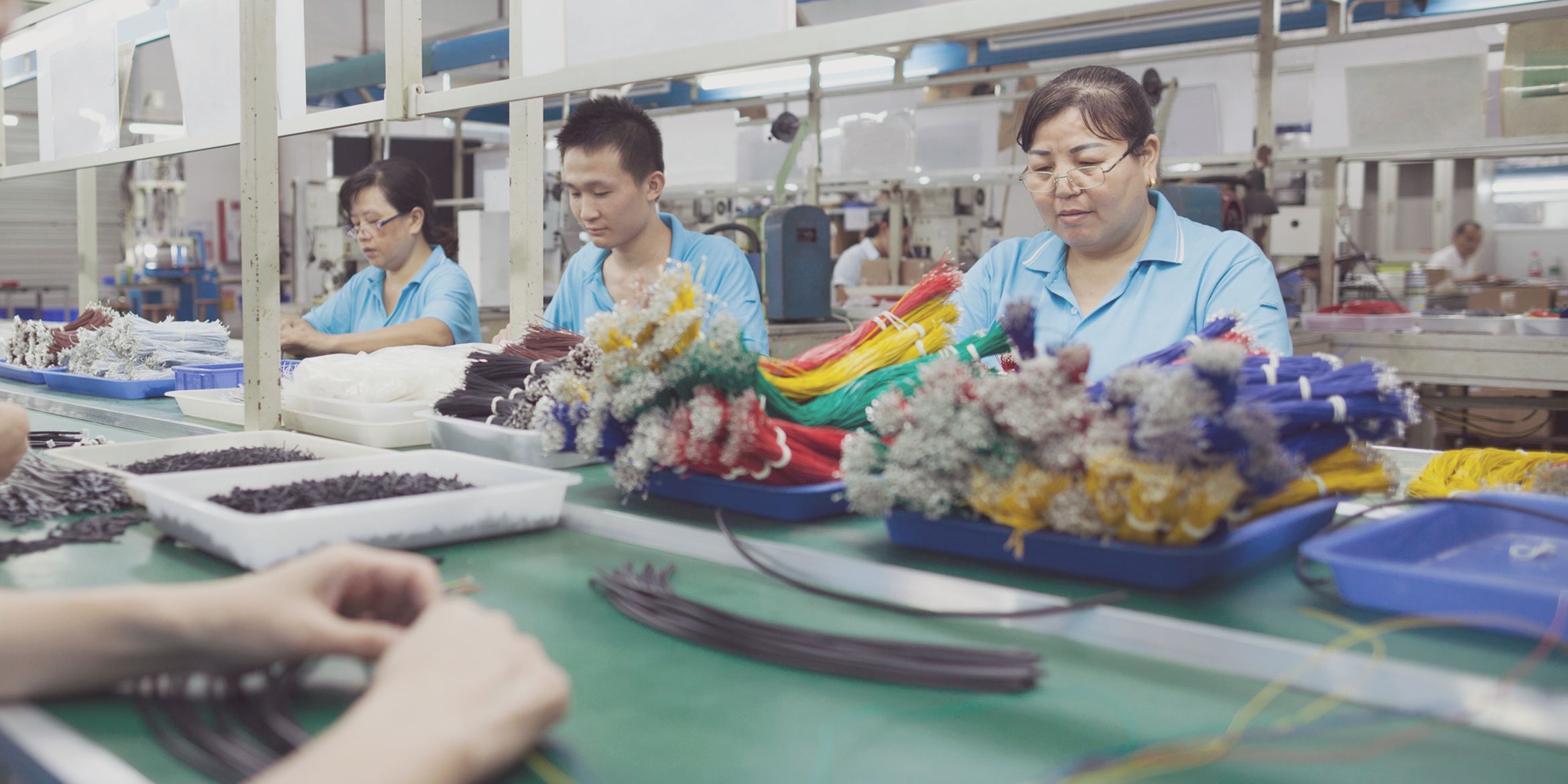Poor working conditions is a risk throughout the IT product supply chain. Stephen Fuller, TCO Development’s expert on supply chain management, explains how we work with brand owner engagement, systematic accountability and clear consequences to ensure that problems are detected and improvements made.
Why are social criteria included in TCO Certified?
“For those who want to drive greater social responsibility, a major issue is the complexity of the IT product supply chain. The computer or smartphone can contain thousands of components and the network of subcontractors supplying components and raw materials covers many companies on several continents.
“We introduced our first criteria on socially responsible manufacturing 10 years ago. At the time, no other IT product certification covered this issue. IT product supply chains are complex and factories situated far around the world. This made independent factory access and verification a challenge. For a certification, there’s also a risk of being associated with negative practices if improvements aren’t made. These concerns can discourage a certification from tackling the issues with supply chain responsibility, but we chose a different path. At TCO Development, we have a holistic perspective on sustainability. In addition to environmental sustainability, we consider it to be our obligation to know how certified IT products are manufactured, where they come from and how workers are treated.”
How is an audit done and by whom?
“Audits must lead to positive changes in working conditions. Therefore, brand owners and factory management must allow qualified, accredited, independent auditors following approved audit procedures to have access to their factory. Depending on the size of the factory, social audits typically take two to five days to complete, and cover employee statements, observations and document reviews to help verify factories are working in a structured way to comply with socially responsible principles.”
What happens if problems are detected in the factory?
“The purpose of an audit is to identify non-conformities and their root causes and give that information to the audit requester in a report. Audits have been criticised for not leading to corrective actions. However, it’s not the responsibility of the auditors or the audit to fix identified non-conformities. This must be the responsibility of the brand owner and factory management. At TCO Development we make sure factory management develops an effective corrective action plan to all identified non-conformities. An independent closure audit must later be conducted to verify that the non-conformities from the original audit have been corrected. A closure audit should confirm closure of the non-conformity within 12 months of the initial audit.
“This has proved to be a successful strategy. In our report Impacts and Insights: Effects of TCO Certified in the IT product supply chain, we looked at audit results from 20 final assembly factories manufacturing certified IT products, where independent audits were carried out twice during 2015-2018. In total, 109 non-conformities with the criteria in TCO Certified were found in the initial audits. Corrective action plans were set up, and by the second audit, 84 of these, or 77%, were eliminated.”
How often are factories audited?
“We categorize factories based on risk, allowing brand owners to choose factories that work proactively with sustainability issues. Our categorization is presented on an accepted factory list. Factories registered on this list must submit an approved independent social audit once every 12 months. Factories that can prove themselves to be considered a lower risk can achieve a 24 or 36 month audit cycle. This gives business benefits to factories committed to operating in a socially responsible way. In addition to this, we also conduct annual social audit spot checks to monitor continued compliance in selected risk factories.
“Factories that remain high risk for more than 24 months may be removed from the accepted factory list, which means that they are no longer allowed to manufacture certified IT products. The accepted factory list is shared with all IT product brand owners within the TCO Certified scheme, so they can share audit results, and monitor their suppliers’ corrective action and compliance statuses. They can also easily identify the factories that work most proactively with social sustainability issues, and if they want, transfer their business there.”
Factory conditions criteria in TCO Certified, generation 8
• We’re categorizing factories according to risk and requiring more frequent audit monitoring in high-risk factories than in low-risk factories.
• Each factory must have an independently assessed or certified health and safety management system to ensure in-house capabilities to protect workers from various
hazards.
• Working weeks must not exceed 60 hours, including overtime, irrespective of local laws. Employees must have one day off for every seven consecutive days worked.
• Brand owners must have processes and routines in place to prevent and respond to all forms of corruption, which must be independently verified to align with the International Chamber of Commerce rules on Combating Corruption and Guidelines on Whistleblowing.
How many factories are audited right now?
“Presently, there are 69 registered factories on the accepted factory list and we are monitoring the audit status of all of them. Since the launch of TCO Certified, generation 8, 15 factories have been removed from the list. Out of these, 11 were removed by TCO Development for not meeting the annual audit requirements, while three were removed because brand owners transferred their production of certified products to another factory. As the list becomes more established, I think more brand owners will do the same — giving consistent lower risk factories more business.”
Do issues in factories vary between regions?
“Risk assessments conducted by brand owners on potential suppliers are usually based on
geographic location, local governance factors and risk of human rights violations. However, we
should always remember that doing business in any country carries risk. The rights of workers can quickly decline in historically recognised lower risk countries, since a big factor of exploitation is the worker’s economic situation. Audits show increasing risks associated with migrant workers, forced labor, workplace injury and exposure to hazard in historically lower risk countries.”
Learn more about social responsibility in the IT sector and how TCO Certified can help you drive more responsible practices in this article. In a previous blog post Stephen Fuller shared his views on how COVID-19 might affect the IT supply chain. Read it here.

Stephen Fuller
Senior criteria manager at TCO Development




